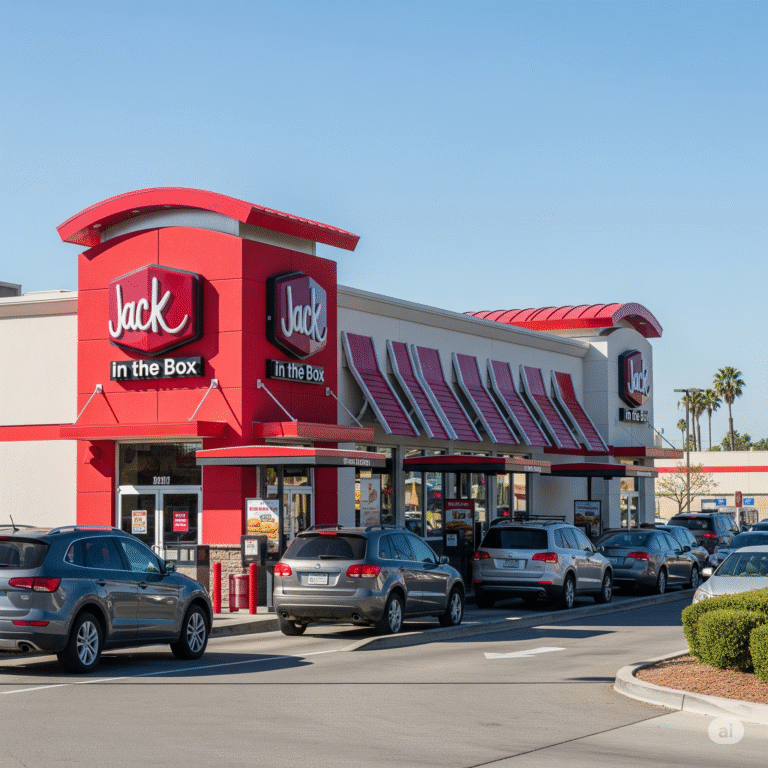1031 Exchange into NNN Properties: A Smarter, More Flexible Investment Strategy
Navigating a 1031 exchange can be one of the most strategic moves a real estate investor makes, especially when transitioning into triple net (NNN) lease properties. A 1031 exchange allows you to defer capital gains taxes by reinvesting the proceeds from the sale of one investment property into another of equal or greater value and a triple net lease property will allow you to enjoy long-term, secure passive income in which you are in control of the asset.
When used effectively, a 1031 exchange can significantly enhance your long-term portfolio growth. Among your many options available, NNN properties stand out for their ability to deliver steady, predictable income with minimal (usually no) management responsibilities. At Triple Net Companies, we specialize in helping investors find NNN 1031 exchange properties for sale that align with their goals and timelines.
What Makes NNN Properties Appealing?
What makes NNN properties particularly appealing in a 1031 exchange is the reliable, long-term returns. In a typical NNN lease, the tenant—often a national brand or franchise—is responsible for paying property taxes, building insurance, maintenance costs and all operating expenses. This means the investor receives net rental income without having to worry about unexpected expenses or daily operational headaches. For investors who are looking to simplify their portfolios, retire from active property management, or shift into more passive income streams, this model is ideal.
Another major advantage of single-tenant NNN properties is the caliber of tenants and the long-term lease structures this type of real estate investment provides. Many NNN properties are leased to creditworthy national tenants such as Starbucks, Walgreens, Dollar General, or AutoZone. These leases often span 10 to 20 years, have no landlord responsibilities, and include built-in rent increases, ensuring an increasing cash flow over time. This level of commercial real estate makes it easier for the property owner to secure financing.


At Triple Net Companies
At Triple Net Companies, we are able to provide investors with the best triple net properties because we are exclusively a buyer’s broker – and have been for the past 40 years. Our proprietary platform allows us to notify you within one hour when a property that meets your exact criteria becomes available. Our proprietary search engine allows you to filter properties by cap rate, lease type, (NN or N) property types (retail, medical, automotive, pharmacies, etc) tenant brand, geographic location, population, growth rate, and other key criteria—so you’re not just finding any property, you’re finding the right property. And because the 1031 timeline is tight—only 45 days to identify a replacement property —we help you move quickly and confidently knowing that you are complying with the internal revenue code.


Why NNN Properties Are Often Better Than DSTs for 1031 Exchanges
While Delaware Statutory Trusts (DSTs) are a legitimate option for a tax-deferred exchange for investors who want a hand-off investment, they come with several restrictions and limitations that don’t exist with NNN investments. DSTs are passive investment vehicles where multiple investors hold fractional interests in institutional-grade assets managed by a sponsor. As an investor, you have no decision-making authority, no control over when the property is sold, no ability to refinance or access equity or even sell your property. However, for some investors, particularly those with smaller exchange amounts, DSTs may be a suitable fit. But for many seasoned investors, the lack of flexibility can be a drawback.
In contrast, NNN properties offer full ownership and complete control. You decide which tenant, location, and lease structure best suits your investment strategy. You can choose whether to finance the purchase, refinance the property, or when to sell. This flexibility allows you to optimize returns, adjust to market shifts, and maintain control over exit strategies. Moreover, well-situated NNN properties often appreciate in value, offering not just income but also long-term capital growth potential—something that DST investors forfeit by not holding title to the property.
Primary Fees
Acquisition Fee: A one-time fee paid to the sponsor for sourcing, negotiating, and acquiring the property, typically ranging from 1% to 3% of the purchase price.
Financing Fee: If the property is leveraged, a financing fee may be charged by the sponsor to arrange the loan, generally around 0.5% to 2% of the loan amount.
Asset Management Fee:
An ongoing annual fee (0.25% to 0.75% of equity) paid to the sponsor for managing the property, reporting, and investor communications.
Property Management Fee:
Third-party management fees (usually 3% to 5% of gross rent) are passed on to investors to handle daily operations.
Other Fees & Costs
Disposition Fee: Paid when the property is sold, this fee is generally 1% to 2% of the sale price and compensates the sponsor for managing the disposition process.
Organizational & Offering Costs: These setup costs, which include legal, accounting, and marketing, can total up to 10% to 15% of the offering amount—reducing how much of your capital is actually invested in the property.
Broker-Dealer or Selling Commissions: If sold through a financial advisor or broker, expect upfront commissions of 5% to 7%, which further reduces your effective investment.
Capital Reserves and Escrow:
Some DSTs build in reserves for future maintenance, improvements, or leasing costs, which are deducted from the investment’s cash flow over time.
Risk Management
Risk management also tilts in favor of NNN investments. With DSTs, if the sponsor makes a poor management decision or the underlying asset underperforms, your hands are tied. In NNN investing, you’re the one in charge. You can proactively manage risk by choosing a buyer’s broker like Triple Net Companies that has performed over $2 billion dollars of due diligence of both double net and triple net properties.
Lastly, for those building a legacy portfolio, NNN properties offer superior estate planning advantages. You can pass on a tangible, income-producing asset to your heirs, and because you hold title, your beneficiaries receive a step-up in basis—resetting the property’s value for tax purposes. DSTs, by contrast, are more complex in estate transitions and may not offer the same clarity or benefits.

Final Thoughts: NNN 1031 Exchange Properties
In conclusion, while both DSTs and NNN properties serve their place in the world of 1031 exchanges, investors seeking more control, better flexibility, and long-term wealth-building potential should strongly consider the advantages of triple net lease investments. With Triple Net Companies by your side, you’ll have the tools, expertise, and inventory to execute your 1031 exchange with confidence and success.